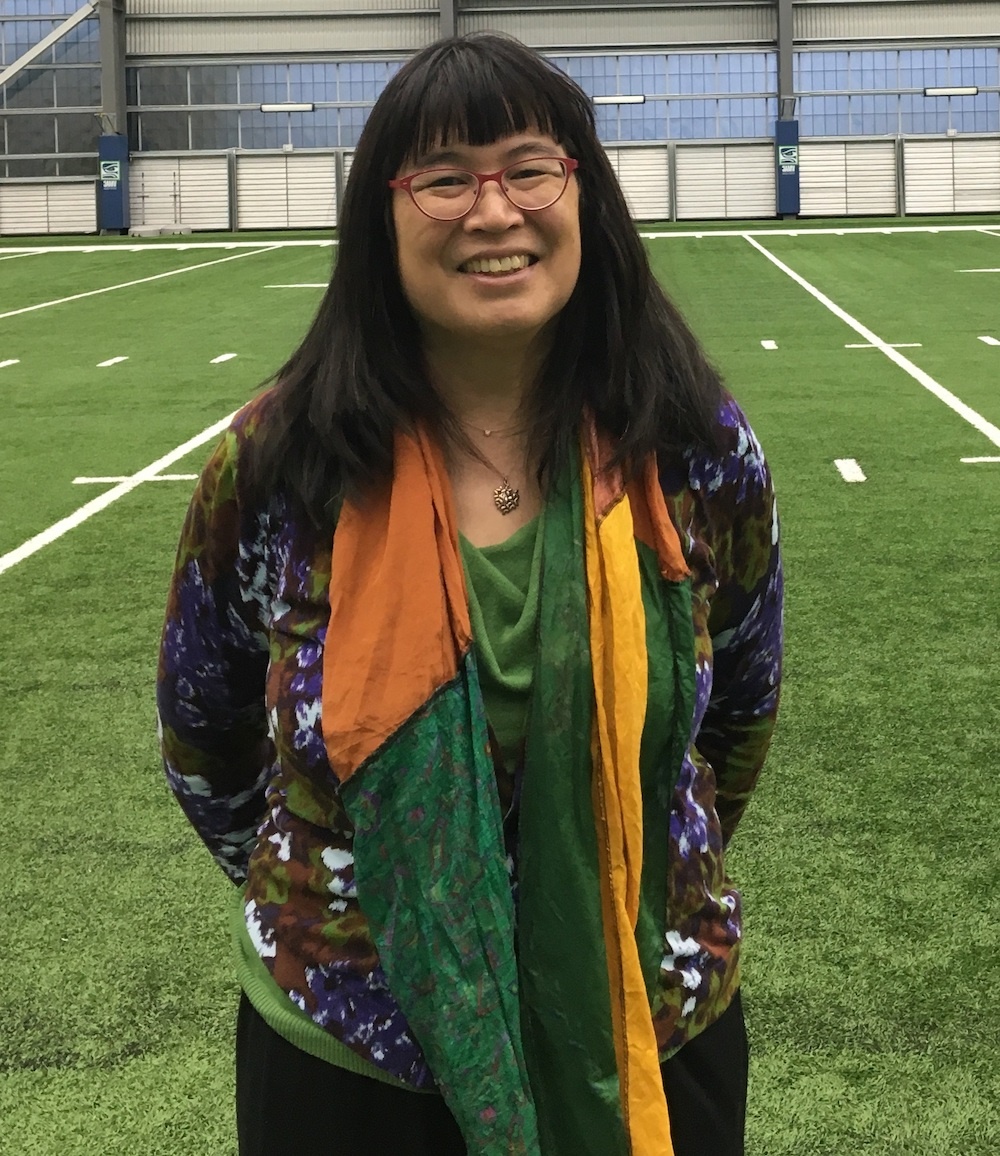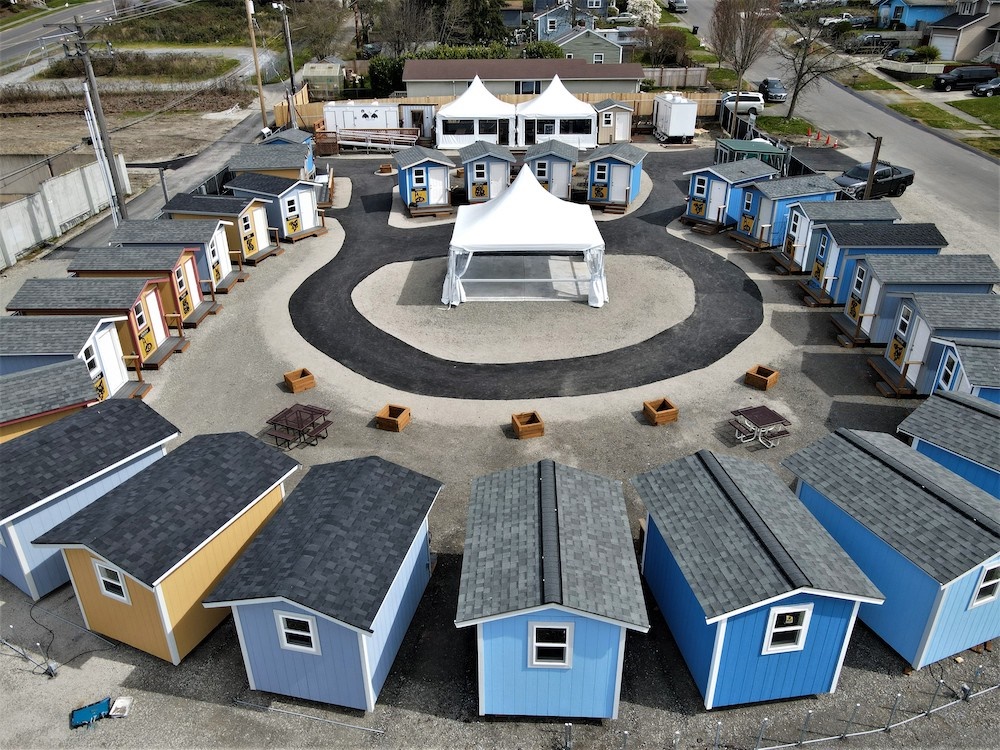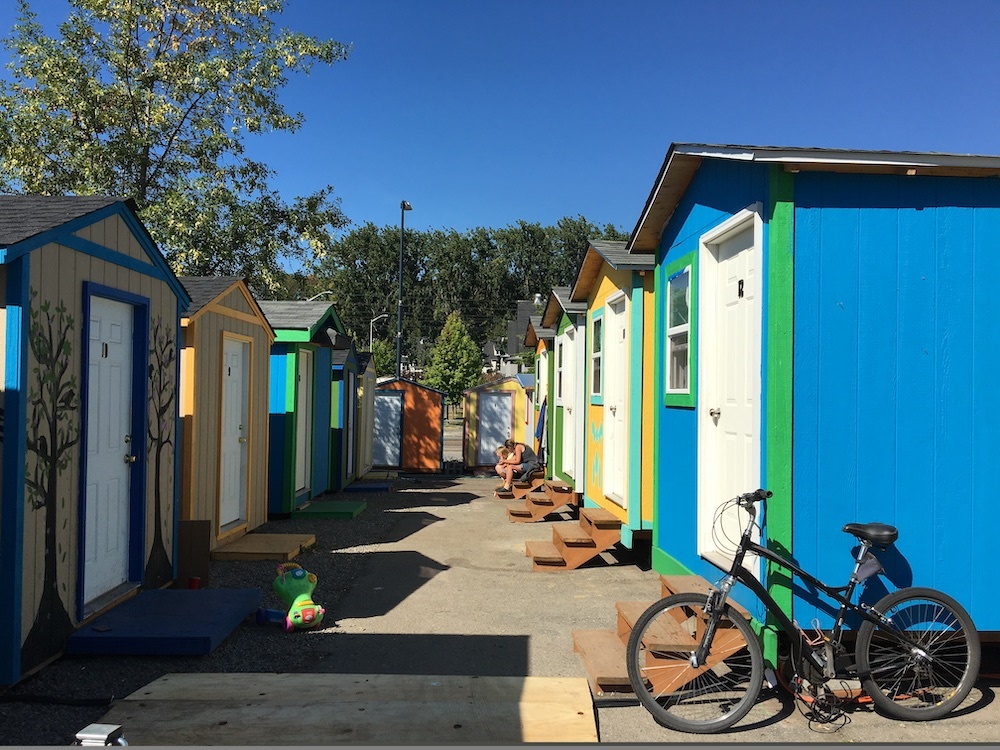Sharon Lee was born in New York and spent part of her formative years with her grandparents in Hong Kong when her parents divorced. Even at age 5, Lee, executive director of Low Income Housing Institute (LIHI), reports being conscious of the wide wealth disparities that existed in the world. Each morning when she arrived at school, she passed men and women sitting outside the gate, asking for spare change. In first grade, she recalls going home with a friend whose extended family lived together in a single room that was wall-to-wall bunkbeds. In contrast, Lee shared a bedroom with her sister and lived with her grandparents in a spacious apartment building that her grandparents owned.

When she and her sister moved back to the United States, this time to Philadelphia, Pennsylvania, she saw some of the same disparities. In college, she became involved in preservation and advocacy for Philadelphia's Chinatown. She worked with legal services, too, helping low-income tenants who lived in dilapidated housing.
She was on her way to a career doing what she wanted to do: Work for social change. She moved to Boston, earning a joint master's degree in city planning and architecture at MIT, to get more of the background she thought she needed. Then she moved to Seattle, where she worked for the City Council on affordable housing and urban redevelopment. While there, she lobbied state legislators and helped set up the Washington State Housing Trust Fund, a program that helps preserve and create affordable housing. The program is still running today.
Lee worked with an architect before joining Fremont Public Association, a community action agency, where she was again involved in nonprofit housing, helping develop housing for teen mothers experiencing homelessness. She knew how to measure a building. She knew how to fill out grant applications. She quickly learned to finance projects.
"My whole purpose is to serve and build housing for the under-represented population – for people the market doesn't serve," Lee says. "That includes young adults experiencing homelessness veterans, families, people living with mental illness and seniors."
But Lee's community action agency had been uncomfortable with the idea of owning and managing housing, Lee says. "They considered it a risk." Lee says it was a risk she believed they needed to take and in 1991, they incorporated the Low Income Housing Institute to develop, own and manage housing. Lee came on as executive director of what would become a NeighborWorks network organization. She's been there ever since.
"The disparity I saw when I was a child is something I saw when I moved to Seattle, too," she says. "We have the third largest homeless population among major cities, after New York and Los Angeles … We've been developing low-income housing at a good clip, but not quick enough."
A number of years ago, Lee decided it was time to look at different types of transitional housing. They found a church property and worked with the church to start the first Tiny House Village: 14 tiny houses in a residential neighborhood. LIHI insulated the houses, connecting them with electricity and heat. It became a national model. They added a shared kitchen and a building with toilets and showers. Since 2015 LIHI has created 15 villages with 14 to 50 tiny houses in each.

Melinda Nichols, vice president of LIHI's board of directors, says the two had long conversations about the idea of the tiny homes, since LIHI had been more focused on permanent housing, rather than transitional. "We decided it was urgent," says Nichols, who approached Lee about becoming a board member after hearing about her reputation. "Her devotion is to put a roof over the heads of poor and homeless people. Period." She says Lee is willing to do anything – traditional and proven or new and innovative – to make that happen.

With Lee, it always comes down to advocacy, Nichols says. For instance, the two worked together to lobby for state legislation to pay students in a pre-apprenticeship program. Nichols works with the pre-apprenticeship program training individuals – mostly women and women of color – in carpentry.
"She never says, 'Oh, that's interesting,' when you approach her," Nichols says. "She says, 'Wow.' She gets people involved and that makes projects grow bigger and faster." After 26 years on the board, Nichols remains. "How do you ever leave someone who allows you to make your dreams a reality? That's Sharon Lee."
"One thing I've learned from my experience in leadership is to look for opportunities and be open to new ideas," she says. "Another is that you can't just be a housing production machine. We have to expend energy on advocacy. That means advocating at the local and state levels for more housing resources."
When the King County Executive, the highest elected county government official, wanted to give millions of dollars in hotel and motel tax revenue to benefit the Mariners baseball team, for instance, she talked to elected officials about the people who slept outside in the shadow of the stadium, leading a campaign that led to millions of dollars for low-income housing instead.
When large banks began to acquire smaller banks, Lee spoke against the mergers. "I was told, 'You can't afford to do that professionally,'" she says. But she formed a coalition opposing the mergers. The banks came to the table, negotiating Community Reinvestment Act (CRA) agreements, putting dollars back into the community "You can still speak out, advocate and fight for social change and grow your nonprofit," Lee says.

